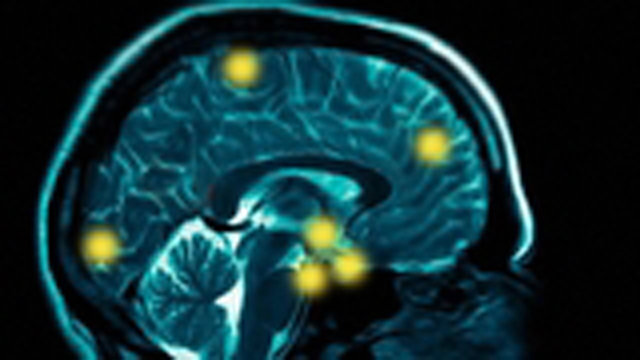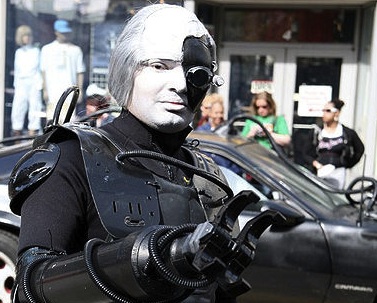One orthodoxy has long dominated neuropsychology: the brain controls the mind, which has no independent existence outside of the chemical reactions and patterns which constantly fire inside our brains. Neuro-biologists have long held that the brain exclusively drives the mind, and that the mind serves only the individual self.
Search Results
You searched for: Physical Constants
Last month, I had the honor of greeting my colleague, Stephen Hawking, famed cosmologist, in New York, where he was being honored by the World Science Festival for all his scientific […]
Nobel Prize-winning physicist William Phillips has used lasers to make atoms nearly as cold as they can possibly be—but he says he still hasn’t gotten them cold enough. “Every process […]
“In fact, it is often stated that of all the theories proposed in this century, the silliest is quantum theory. Some say that the only thing that quantum theory has […]
There was a philosopher once who had no patience with geekish hype about information technology. This application, he wrote, would never make people smarter or better. In fact, it made […]
We’ve always had a strange fascination with watching ourselves. Oscar Wilde’s Dorian Gray famously agonized over the reflection of a hedonist life on his portrait, which aged and suffered at […]
The argument that “we take the internet for granted” may seem like a tired straw man. But perhaps the ideology of the internet could stand a second look. Maybe we […]
The Web and cloud computing have made the work of archivists and record keepers faster than ever before, but is information lost in the internet’s labyrinth any more accessible than […]
“Remarkable claims require remarkable proof.” — Carl Sagan The “multiverse” idea—once thought to be so crazy it only belonged on late night television—has now become the dominant theory in all of […]
Caitlin Flanagan’s essay, Love Actually, in the new Atlantic, reminds us why mothers and daughters find adolescence uniquely challenging. A girl becomes a woman, and yet her relationship to that […]
This spring in the sophomore-level course I teach on “Communication and Society,” we spent several weeks examining the many ways that individuals and groups are using the internet to alter […]
This semester in the sophomore-level course I teach on “Communication and Society,” we spent several weeks examining the many ways that Americans are using the Internet to alter the nature […]
Imagine how different your life would be if next Earth Day a year from now, you supplied the power to this computer—by pedaling, churning or dancing. The way these students […]
This fall in the sophomore-level course I teach on “Communication and Society,” we spent several weeks examining the many ways that individuals and groups are using the internet to alter […]
This morning Big Think is pleased to present a kind of double feature: a full-length interview with CUNY theoretical physicist, futurist, and radio host Michio Kaku, and the launch of his […]
This semester in the sophomore-level course I teach on “Communication and Society,” we spent several weeks examining the many ways that individuals and groups are using the internet to alter […]
The second part of Eruptions readers’ recollections of the historic May 18, 1980 eruption of Mount St. Helens.
As one of my professors used to joke, any field with the word “science” in its name is probably not a science. If you have to explain that what you’re […]
Gravity may not be a force of attraction, but a ‘force’ similar to momentum with energy transferred on a subatomic level.
Why Restorative Justice should be the core idea of a new political rhetoric?
the evolutions and revolutions of the human social sytems and system.
Obama’s early life was decidedly chaotic and replete with traumatic and mentally bruising dislocations. Mixed-race marriages were even less common then. His parents went through a divorce when he was an infant (two years old). Pathological narcissism is a reaction to prolonged abuse and trauma in early childhood or early adolescence. The source of the abuse or trauma is immaterial: the perpetrators could be dysfunctional or absent parents, teachers, other adults, or peers.
This is an interpretation of Niccolo Machivelli’s 1517 imcomplete poem L’Asino. The so-called cynic cold-blooded advisor of evil shows a ‘parenthetical’ aestheticism in his perception of friendship. Friedrich Nietzsche, one of the great prospects of aesthetic politics comes to be a useful tool for the interpretation of Machiavelli’s ‘poetic therapy’.













